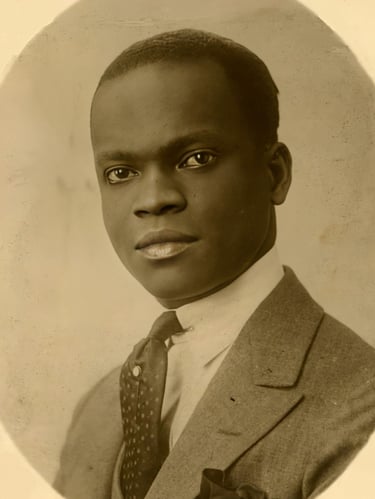

Rudolph Dunbar - Clarinettist Conductor Composer
Rudolph Dunbar was a conductor, clarinettist, composer, educator, and journalist who broke boundaries. He was born on the 5th April 1899 in Nabaclis, British Guiana (now Guyana). In 1919 he travelled to New York City, USA where, he studied at the Institute of Musical Art of Columbia University – now know as Juilliard. Whilst studying Dunbar immersed himself in the vibrant scene of the Harlem Renaissance, he was influenced by the jazz and cultural energy.
Dunbar decided to move to Paris, France where he fine-tuned his clarinet and musical arrangement skills. He lived in Paris for six years. Dunbar's next move was to London in 1931 where he started writing a weekly column for The Melody Maker, championing the clarinet with such
knowledge and passion that readers across the country were inspired to take up the instrument. Later that year, he opened the Rudolph Dunbar School of Clarinet Playing, cementing his influence on a generation of musicians. By 1939 Dunbar had published Treatise on the Clarinet (Boehm System) - a textbook that brought his teachings to print, combining his Melody Maker lessons with years of professional insight. The book was reprinted nine times.
In 1942, Dunbar made history by becoming the first Black conductor to lead the London Philharmonic Orchestra at the Royal Albert Hall. A landmark moment. However, he didn’t stop there, Dunbar also conducted the Liverpool Philharmonic, the Berlin Philharmonic, and was the first Black man to conduct in both Poland and Russia – unheard of at the time. During the Second World War Dunbar served as a London war correspondent for the Associated Negro Press, his reporting covered everything from war at the frontlines to the struggles against colonialism and racism. After the war Dunbar continued to write, documenting the independence movements of African and Caribbean nations.
Despite his undeniable brilliance Dunbar’s post-war musical career slowed. He attributed this slow down to racism, especially from within institutions like the BBC.
Rudolph Dunbar passed away in London on the 10th June 1988.
Rudolph Dunbar conducting at the Royal Albert Hall in 1942
Want information about jobs in the entertainment industry? Click HERE
